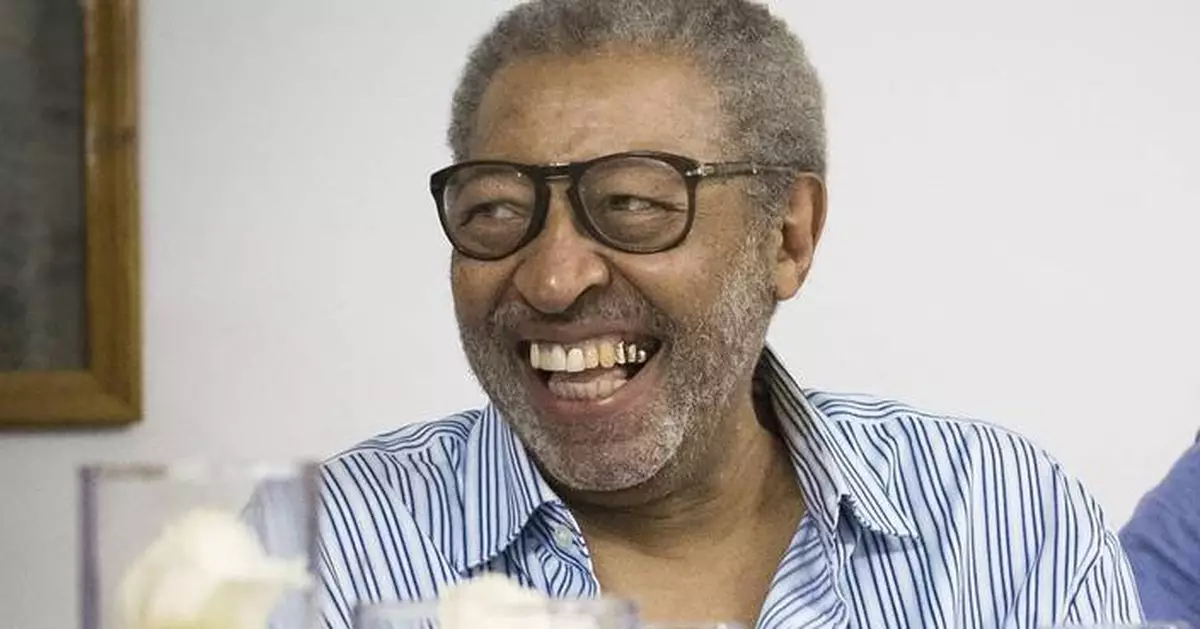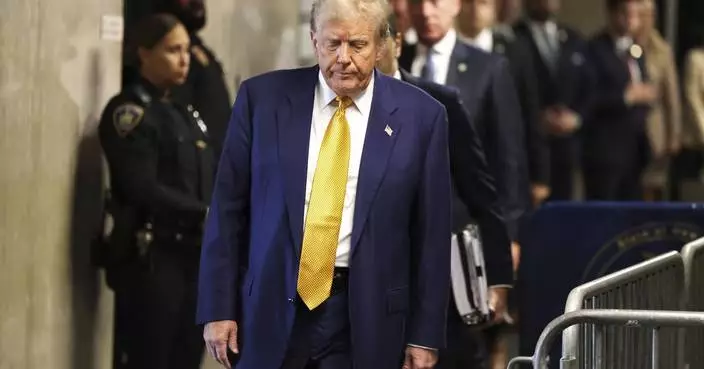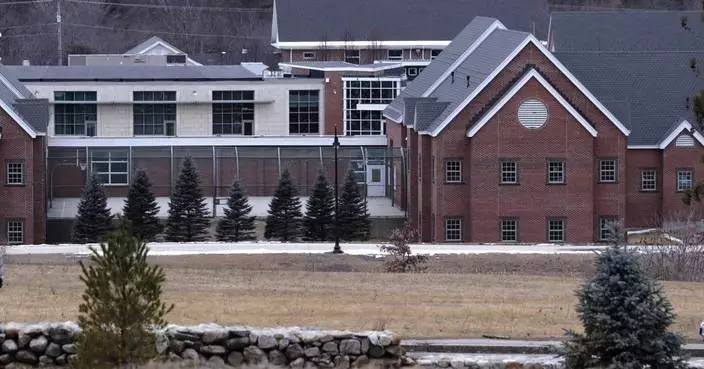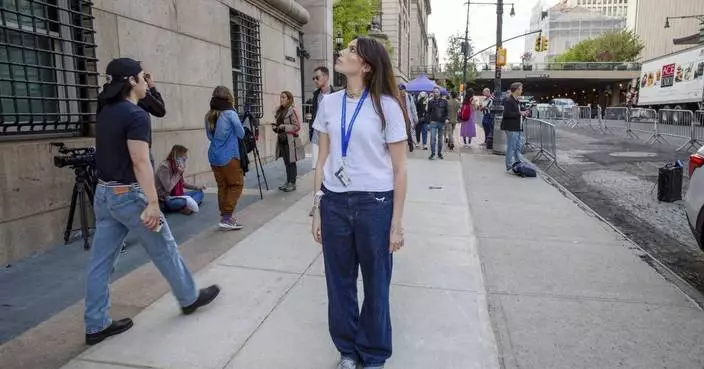BOSTON (AP) — William Strickland, a longtime civil rights activist and supporter of the Black Power movement who worked with Malcolm X and other prominent leaders in the 1960s, has died. He was 87.
Strickland, whose death April 10 was confirmed by a relative, first became active in civil rights as a high schooler in Massachusetts. He later became inspired by the writings of Richard Wright and James Baldwin while an undergraduate at Harvard University, according to Peter Blackmer, a former student who is now an assistant professor of Africology and African American Studies at Easter Michigan University.
“He made incredible contributions to the Black freedom movement that haven't really been appreciated,” Blackmer said. “His contention was that civil rights wasn't a sufficient framework for challenging the systems that were behind the oppression of Black communities throughout the diaspora.”
Strickland joined the Boston chapter of the Northern Student Movement in the early 1960s, which provided support to sit-ins and other protests in the South. He became the group's executive director in 1963 and from there became a supporter of the Black Power movement, which emphasized racial pride, self-reliance and self-determination. Strickland also worked alongside Malcolm X, Baldwin and others in New York on rent strikes, school boycotts and protests against police brutality.
Amilcar Shabazz, a professor in the W.E.B. Du Bois Department of Afro-American Studies, University of Massachusetts, said Strickland followed a path very similar to civil rights pioneer Du Bois.
“He underwent a similar kind of experience to committing himself to being an agent of social change in the world against the three big issues of the civil rights movement — imperialism or militarism, racism and the economic injustice of plantation capitalism,” Shabazz said. “He committed himself against those triple evils. He did that in his scholarship, in his teaching, in his activism and just how he walked in the world.”
After the assassination of the Rev. Martin Luther King Jr., Strickland co-founded the independent Black think tank, the Institute of the Black World. From its start in 1969, it served for several years as the gathering place for Black intellectuals.
From there, he joined the University of Massachusetts Amherst, where he spent 40 years teaching political science and serving as the director of the W.E.B. Du Bois Papers. He also traveled to Africa and the Caribbean, where Shabazz said he met leaders of Black liberation movements in Africa and Cuban leader Fidel Castro.
Strickland also wrote about racism and capitalism for several outlets including Essence and Souls and served as a consultant for several documentaries including “Eyes on the Prize” and the PBS documentary “Malcolm X — Make It Plain,” Blackmer said.
Comparing him to Malcolm X, Blackmer said one of Strickland's gifts was being able to take weighty issues like “complex systems of oppression” and make them “understandable and accessible” to popular audiences.
“As a teacher, that is how he taught us to think as students — to be able to understand and deconstruct racism, capitalism, imperialism and to be fearless in doing so and not being afraid to name the systems that we're confronting as a means of developing a strategy to challenge them,” Blackmer said.
For relatives, Strickland was an intellectual giant with a sense of humor who was not afraid “to speak his mind.”
“He always spoke truth to power. That was the type of guy he was,” said Earnestine Norman, a first cousin recalling their conversations that often occurred over the FaceTime phone app. They were planning a trip to Spain where Strickland had a home before he started having health problems.
“He always told the truth about our culture, of being Africans here in America and the struggles we had," she continued. “Sometimes it may have embarrassed some people or whatever but his truth was his truth. His knowledge was his knowledge and he was not the type of person as the saying goes to bite his tongue.”
This story was initially published on April 22. It was updated on April 23 to fix the spelling of Malcolm X's first name in two instances.

William Strickland laughs in theis 2016 photo in Austria. William Strickland, a longtime civil rights activist and supporter of the Black Power movement who worked with Malcom X and other prominent leaders in the 1960s, has died. (Rene Wieland via AP)











